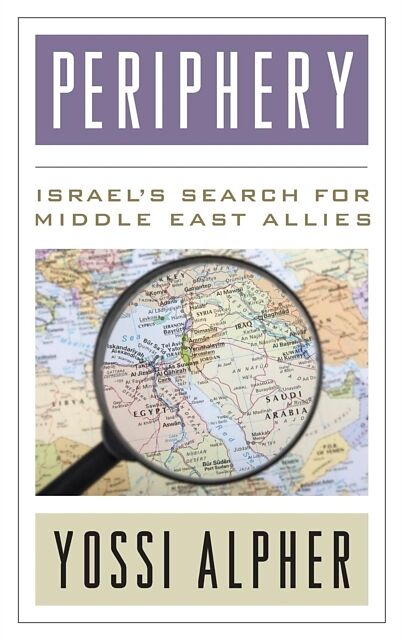Periphery
Einband:
Fester Einband
EAN:
9781442231016
Untertitel:
Israel's Search for Middle East Allies
Genre:
Politikwissenschaft
Autor:
Yossi Alpher
Herausgeber:
Rowman & Littlefield Publishers
Anzahl Seiten:
196
Erscheinungsdatum:
22.01.2015
ISBN:
1442231017
Autorentext
By Yossi Alpher
Klappentext
Since its establishment after World War II, the State of Israel has sought alliances with non-Arab and non-Muslim countries and minorities in the Middle East, as well as Arab states geographically distant from the Arab-Israel conflict. The text presents and explains this regional orientation and its continuing implications for war and peace. It examines Israel's strategy of outflanking, both geographically and politically, the hostile Sunni Arab Middle East core that surrounded it in the early decades of its sovereign history, a strategy that became a pillar of the Israeli foreign and defense policy. This "periphery doctrine" was a grand strategy, meant to attain the major political-security goal of countering Arab hostility through relations with alternative regional powers and potential allies. It was quietly abandoned when the Sadat initiative and the emerging coexistence between Israel and Jordan reflected a readiness on the part of the Sunni Arab core to deal with Israel politically rather than militarily. For a brief interval following the 1991 Madrid conference and the 1993 Oslo accords, Israel seemed to be accepted by all its neighbors, prompting then Foreign Minister Shimon Peres to muse that it could even consider joining the Arab League. Yet this periphery strategy had been internalized to some extent in Israel's strategic thinking and it began to reappear after 2010, following a new era of Arab revolution. The rise of political Islam in Egypt, Turkey, Gaza, southern Lebanon and possibly Syria, coupled with the Islamic regime in Iran, has generated concern in Israel that it is again being surrounded by a ring of hostile states-in this case, Islamists rather than Arab nationalists. The book analyzes Israel's strategic thinking about the Middle East region, evaluating its success or failure in maintaining both Israel's security and the viability of Israeli-American strategic cooperation. It looks at the importance of the periphery strategy for Israeli, moderate Arab, and American, and European efforts to advance the Arab-Israel peace process, and its potential role as the Arab Spring brings about greater Islamization of the Arab Middle East. Already, Israeli strategic planners are talking of "spheres of containment" and "crescents" wherein countries like Cyprus, Greece, Azerbaijan, and Ethiopia constitute a kind of new periphery. By looking at Israel's search for Middle East allies then and now, the book explores a key component of Israel's strategic behavior. Written in an accessible manner for all students, it provides a better understanding of Israel's role in the Middle East region and its Middle East identity.
Inhalt
For Whom it May Concern Preface Acknowledgements Introduction I.The Periphery Doctrine at Work 1.Evolution of a Grand Strategy 2.The Northern Triangle: Iran and Turkey 3.Morocco 4.The Southern Periphery 5.The Levant Minorities 6.The Kurds of Northern Iraq 7.The Jewish Dimension 8.The American Dimension 9.End of the First Periphery, 1973-1983 II.Ramifications 10.Iran: periphery nostalgia and its costs 11.Israeli skeptics 12.Between peripheries: peace, isolation and Islam 13.Is there a new periphery? 14.Arab reaction III.Conclusion 15.Can Israel find a regional identity? Heads of Mossad Persons interviewed Maps: 1.The original periphery concept 2.The expanded southern periphery 3.The ethnic periphery 4.A new periphery? Index About the Author

Leider konnten wir für diesen Artikel keine Preise ermitteln ...
billigbuch.ch sucht jetzt für Sie die besten Angebote ...
Die aktuellen Verkaufspreise von 6 Onlineshops werden in Realtime abgefragt.
Sie können das gewünschte Produkt anschliessend direkt beim Anbieter Ihrer Wahl bestellen.
Loading...
Die aktuellen Verkaufspreise von 6 Onlineshops werden in Realtime abgefragt.
Sie können das gewünschte Produkt anschliessend direkt beim Anbieter Ihrer Wahl bestellen.
| # | Onlineshop | Preis CHF | Versand CHF | Total CHF | ||
|---|---|---|---|---|---|---|
| 1 | Seller | 0.00 | 0.00 | 0.00 |
